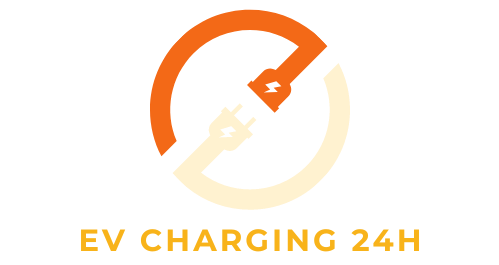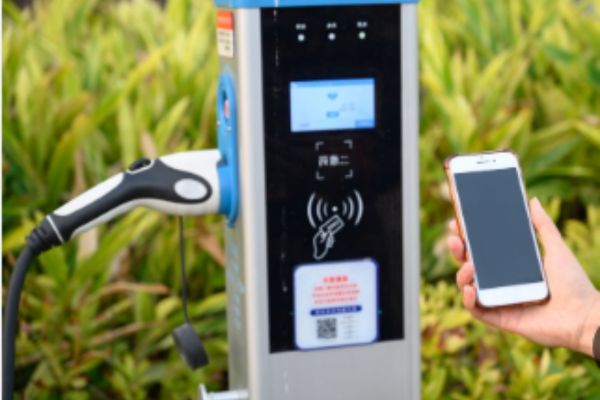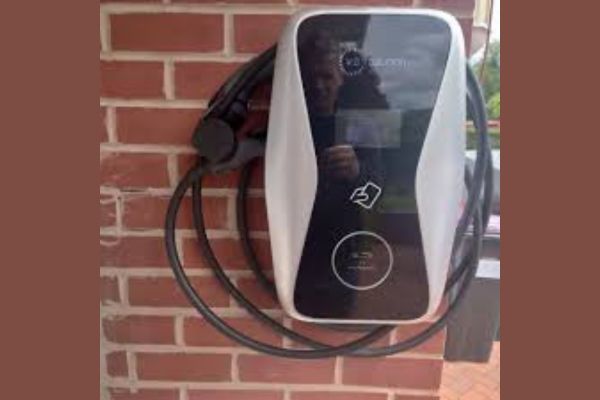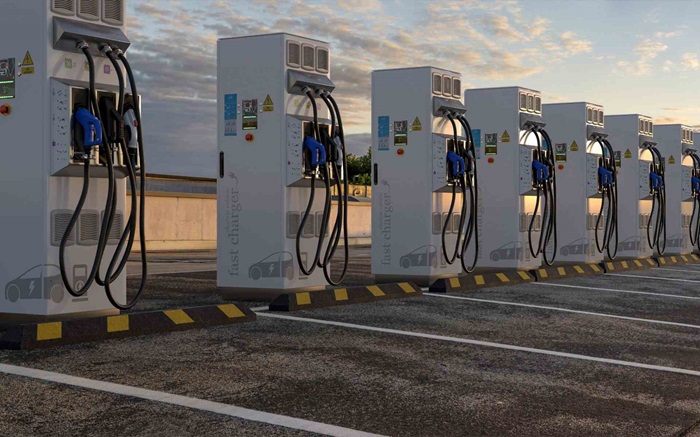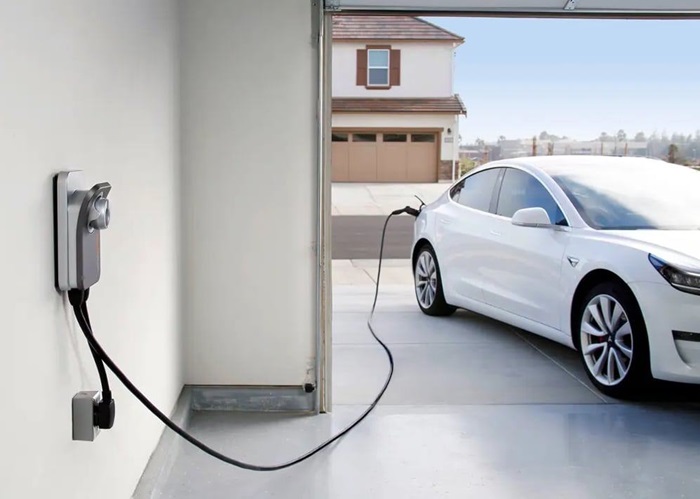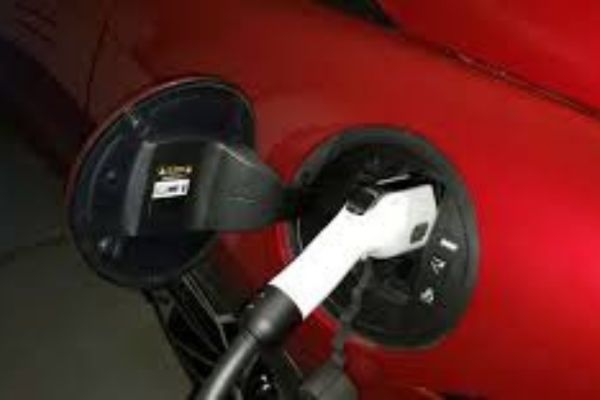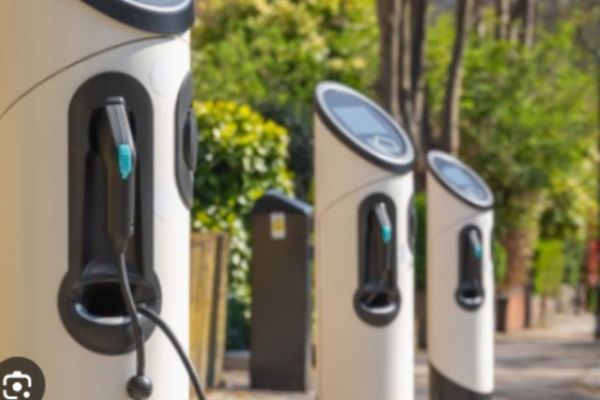Unlock Savings: Where to Find the Cheapest Smart EV Chargers Today
The cheapest smart EV charger offers an economical solution for electric vehicle owners looking to optimize their charging experience. These chargers not only provide significant cost savings but also come equipped with advanced features such as remote accessibility, scheduled charging, and real-time energy usage tracking. Designed to be both user-friendly and efficient, these smart chargers are ideal for residential use, enabling integration with home energy systems to further enhance convenience and energy conservation.
With the rise in electric vehicle ownership, choosing an affordable smart EV charger is a savvy move for cost-conscious consumers aiming to reduce their environmental impact while maximizing functionality.
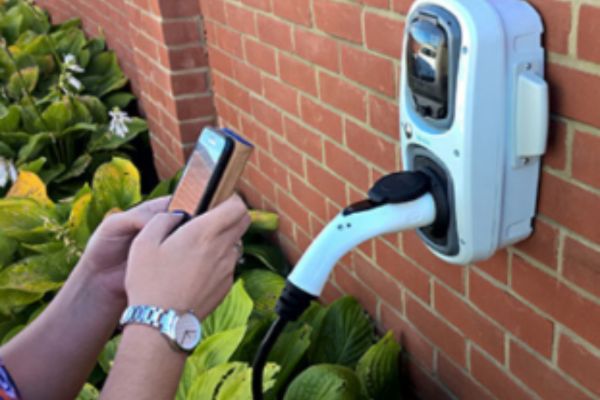
Introduction
Choosing the right electric vehicle (EV) charger is crucial in the era of transitioning to sustainable transportation. With a growing emphasis on affordability and smart features, selecting the appropriate charger ensures efficient and convenient charging experiences for EV owners. This introduction explores the significance of making informed decisions when it comes to EV chargers, focusing on both financial considerations and technological advancements.
Trends in EV Adoption
The rise in electric vehicle ownership significantly impacts the demand for home chargers. As more individuals opt for electric vehicles, the need for convenient and reliable charging solutions at home becomes paramount. Home chargers offer the convenience of charging overnight, allowing EV owners to start their day with a fully charged battery.
Furthermore, as battery technology advances and extends the range of electric vehicles, owners aim to maximize their vehicles’ potential without solely depending on public charging infrastructure, leading to an increased demand for home chargers.
Economic Considerations
Investing in a home charger presents numerous long-term financial benefits compared to relying solely on public charging stations. While public charging stations provide convenience for EV owners on the go, they often come with associated costs that can accumulate over time. In contrast, a home charger offers cost-effective charging solutions, typically with lower electricity rates and the convenience of charging overnight without the need for additional fees.
Additionally, home chargers add value to residential properties, potentially increasing their market appeal and resale value. Overall, considering the economic advantages, investing in a home charger proves to be a wise decision for EV owners looking to optimize their charging experience while saving costs in the long run.
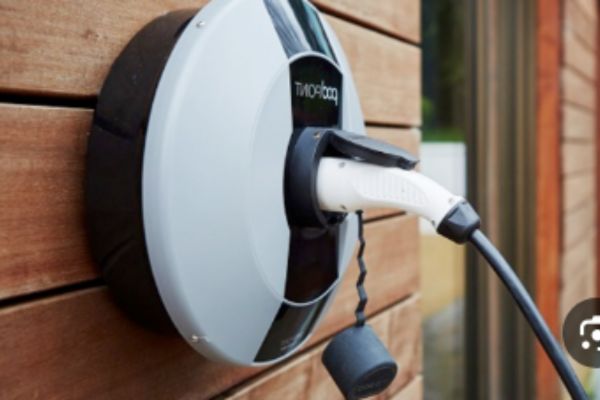
The top budget-friendly smart EV chargers for 2024
In the dynamic landscape of electric vehicle (EV) charging solutions, finding a budget-friendly option with smart features is increasingly vital. This review focuses on identifying top choices that combine affordability with intelligent functionalities, ensuring a seamless charging experience for EV owners without breaking the bank.
Emporia EV Charger
Overview and Features
The Emporia EV Charger stands out as a cost-effective yet feature-rich option for EV owners seeking smart charging solutions. With its sleek design and robust build quality, this charger offers a reliable and efficient charging experience.
Key smart functionalities include Wi-Fi connectivity for remote monitoring and control, scheduling charging sessions to take advantage of off-peak electricity rates, and compatibility with smart home ecosystems such as Amazon Alexa and Google Assistant.
Compatibility and upgradeability
Designed to be compatible with a wide range of EV models, the Emporia EV Charger supports both plug-in hybrid electric vehicles (PHEVs) and battery electric vehicles (BEVs). Its flexible design allows for easy installation in residential settings, accommodating various electrical configurations.
Additionally, the charger boasts the potential for firmware upgrades, ensuring future compatibility with emerging EV technologies and evolving industry standards.
Pros and cons
Pros:
- It boasts an affordable price point when compared to other smart EV chargers available in the market.
- The mobile app interface is intuitive, ensuring seamless monitoring and control.
- There are versatile scheduling options for optimizing charging times and energy consumption.
- For outdoor installations, it boasts robust construction and a weather-resistant design.
Cons:
- There are limited network connectivity options compared to higher-end models.
- Some users report occasional connectivity issues with the mobile app.
- The basic display interface may lack the advanced features found in premium chargers.
Price and availability
Cost-conscious EV owners find the Emporia EV Charger to be an attractive option due to its competitive pricing in the budget-friendly segment of the market.
Current market prices vary based on retailer and promotional offers, but the charger is readily available through online platforms and select retail outlets. For those seeking an affordable yet feature-packed smart EV charging solution, the Emporia EV Charger presents a compelling choice for 2024 and beyond.
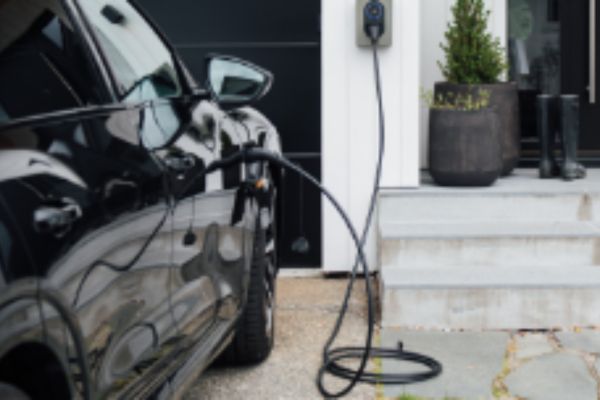
United Chargers Grizzly-E Classic
Overview and Features
The United Chargers Grizzl-E Classic stands out as a reliable and affordable smart EV charging solution tailored to meet the needs of budget-conscious consumers. Despite its competitive price point, the Grizzl-E Classic doesn’t compromise on essential features, offering a robust charging experience for electric vehicle owners.
Its simple yet sturdy design ensures durability and ease of use, making it an ideal choice for residential charging applications. Key features include Wi-Fi connectivity for remote monitoring and control, customizable charging settings, and built-in safety features to protect both the vehicle and the charging infrastructure.
Compatibility and upgradeability
Various manufacturers design the Grizzl-E Classic to be compatible with a wide range of electric vehicles, including plug-in hybrids and battery electric vehicles. Its universal J1772 connector ensures seamless compatibility with most EV models on the market, providing versatility and convenience for users with different vehicles.
While the charger itself doesn’t offer extensive upgrade options, United Chargers regularly provides firmware updates to enhance performance and compatibility with emerging EV technologies.
Pros and cons
Pros:
- It has an affordable price tag when compared to many other smart EV chargers in its class.
- The installation process is straightforward and requires minimal hardware.
- The mobile app interface is user-friendly, providing convenient monitoring and control.
- Durable construction and a weatherproof design make it suitable for outdoor installations.
Cons:
- There are fewer advanced features compared to the premium smart chargers available in the market.
- Some users may find the design aesthetics to be less appealing compared to sleeker alternatives.
- There are occasional reports of connectivity issues with the mobile app, although firmware updates aim to address such issues over time.
Price and availability
The United Chargers Grizzl-E Classic is widely available for purchase through authorized retailers and online platforms specializing in EV charging equipment. Prices may vary depending on the seller and any ongoing promotions, but the Grizzl-E Classic typically offers excellent value for its feature set and reliability. For consumers seeking an affordable yet dependable smart EV charging solution, the Grizzl-E Classic presents a compelling option with a focus on affordability and functionality.
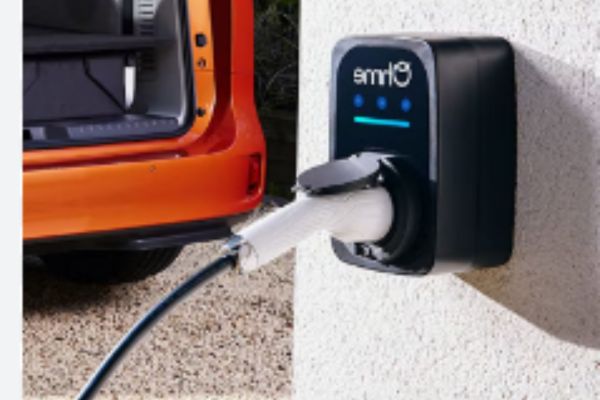
Detailed Comparison of Features
| Feature | Emporia EV Charger | United Chargers Grizzly-E Classic |
| Charging Speed and Power | Charging speeds range from 16 to 32 amps, up to 7.7 kW. | Options are available in 16, 24, and 40-amp configurations, up to 9.6 kW. |
| Wi-Fi connectivity and smart features | The system offers Wi-Fi connectivity for remote monitoring and control, scheduling, and real-time monitoring. | Features: Wi-Fi connectivity for remote access, scheduling, monitoring, and notifications |
| Installation and Ease of Use | The installation process is straightforward and the compact size makes it suitable for residential environments. | The product offers hassle-free installation, durable construction, and is suitable for both indoor and outdoor use. |
| Energy Efficiency and Environmental Impact | High energy efficiency ratings, smart scheduling features, and potential for integration with renewable energy sources | Designed with energy efficiency in mind, compatible with renewable energy sources, it promotes sustainability. |
Comprehensive Buyer’s Guide
Choosing the right charger
When selecting an electric vehicle (EV) charger, several factors should be considered to ensure compatibility and optimal functionality. Firstly, assess the charger’s charging power, taking into account both the amperage and voltage requirements of your EV to ensure efficient charging. Additionally, check the charger’s compatibility with your specific EV model, including the type of charging connector required.
Furthermore, consider the desired smart features of the charger, such as Wi-Fi connectivity for remote monitoring and control, scheduling capabilities to take advantage of off-peak electricity rates, and compatibility with smart home ecosystems like Amazon Alexa or Google Assistant. Prioritize features that align with your charging preferences and lifestyle.
Installation Tips
The installation process for an EV charger can differ depending on factors such as your home’s electrical setup and local regulations. Consider whether to opt for professional installation services or attempt a DIY installation. Professional installation ensures compliance with electrical codes and regulations, minimizing the risk of safety hazards and ensuring optimal performance of the charger.
However, for those with experience in electrical work and a good understanding of local regulations, a DIY installation may be feasible. Before proceeding with DIY installation, thoroughly read the manufacturer’s installation instructions and consult local authorities to ensure compliance with building codes and safety standards.
Safety and Regulatory Standards
When purchasing an EV charger, prioritize models that comply with important safety and regulatory standards. Look for certifications such as UL (Underwriters Laboratories) or ETL (Electrical Testing Laboratories) listings, which indicate that the charger has undergone rigorous testing to ensure safety and reliability.
Additionally, consider the safety features incorporated into the charger, such as built-in ground fault circuit interrupters (GFCIs) to protect against electric shocks and overcurrent protection to prevent damage to the EV or charging equipment in the event of power surges or faults. Prioritizing chargers that meet these safety standards helps ensure a safe and reliable charging experience for both you and your vehicle.
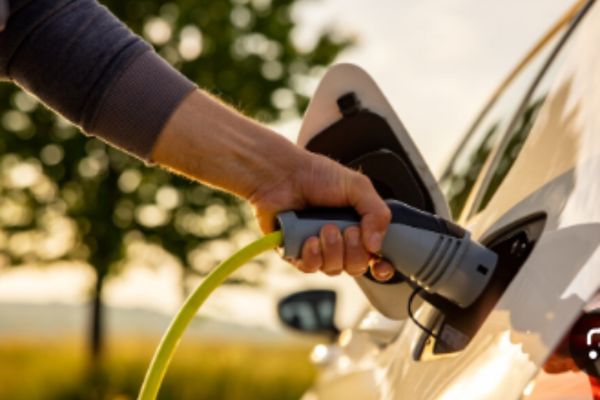
Additional Considerations
Customer Support and Warranty
When making an investment in an electric vehicle (EV) charger, take into account the manufacturers’ level of customer support. Evaluate factors such as the availability of technical support, responsiveness to inquiries, and accessibility of resources such as user manuals and troubleshooting guides.
Additionally, review the warranty coverage offered for the charger, including the duration and scope of coverage for parts and labor. Prioritizing manufacturers with a reputation for excellent customer support and comprehensive warranty policies can provide peace of mind and ensure prompt resolution of any issues that may arise during the charger’s lifespan.
Government incentives and rebates
Explore the potential financial incentives and rebates available for purchasing eco-friendly EV chargers. Many governments and local authorities offer incentives to encourage the adoption of electric vehicles and EV charging infrastructure.
These incentives may include tax credits, rebates, or grants to offset the cost of purchasing and installing EV chargers at residential or commercial properties. Research available programs in your region and take advantage of any incentives that may help reduce the upfront costs of investing in an EV charger, making sustainable transportation more accessible and affordable.
User Testimonials and Case Studies
Seek out user testimonials and case studies to gain insight into real-world experiences with the EV chargers you’re considering. User testimonials provide firsthand accounts of individuals’ experiences with the chargers, including feedback on performance, reliability, and user friendliness.
Additionally, look for case studies that showcase successful installations and use cases of the chargers in different environments, such as residential homes, workplaces, or public charging stations. These testimonials and case studies can offer valuable insights into the long-term satisfaction and practicality of the chargers, helping inform your purchasing decision and ensuring you select a charger that meets your specific needs and expectations.
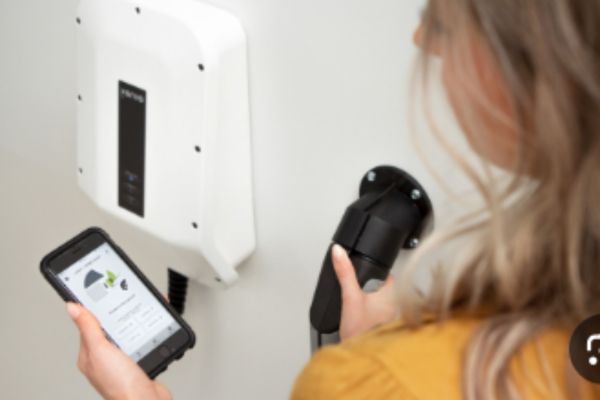
The Future of Smart EV Charging: Buckle Up for a Charged Ride
The world of electric vehicle (EV) charging is rapidly evolving, with smart features taking center stage. Here’s a glimpse into what the future holds:
Emerging Technologies
Faster Charging: Advancements in battery technology and charging infrastructure aim to significantly reduce charging times. We might see widespread adoption of ultra-fast chargers exceeding 350 kW, potentially offering full charges in under 15 minutes.
Bidirectional Charging (V2G): This technology allows EVs to act as power sources, feeding excess energy back to the grid during peak demand periods or powering homes during outages. V2G promotes grid stability and provides additional revenue streams for EV owners.
Wireless Charging: Imagine pulling into your garage and charging automatically without plugging in. Wireless charging pads embedded in driveways or parking spaces are on the horizon, offering ultimate convenience.
Smart Power Management: Chargers will intelligently communicate with the grid and home energy systems to optimize charging based on real-time electricity costs and renewable energy availability. This ensures efficient energy use and cost savings.
Vehicle-to-Everything (V2X): EVs could become part of a larger connected ecosystem, interacting with smart infrastructure for features like automated toll payments or reserving charging spots.
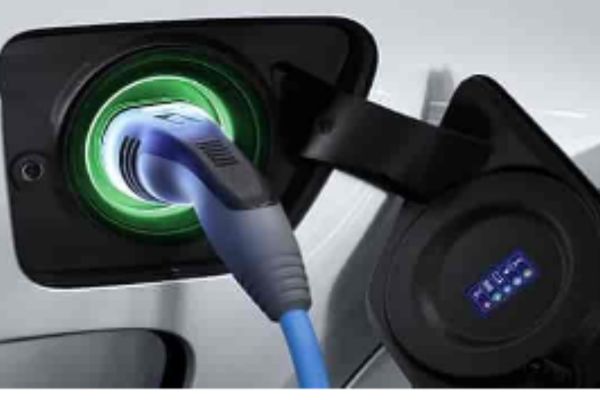
Smart home integration
The future of EV charging will see seamless integration with smart home systems. Imagine these possibilities:
Automated Charging: Your smart home system automatically charges your EV during off-peak hours or when there’s excess solar energy available, maximizing efficiency and cost savings.
Pre-conditioning: The system preheats or cools your EV’s battery while it charges, ensuring optimal performance and range when you’re ready to drive.
Real-time Monitoring: Monitor your EV’s charging status, energy consumption, and estimated range directly through your smart home app.
Security Integration: For added peace of mind, link your charger to your home security system and receive alerts for unauthorized charging attempts.
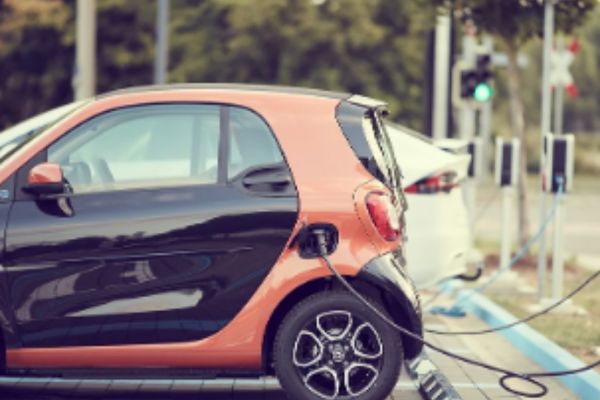
Conclusion
Summary of recommendations
In conclusion, when it comes to budget-friendly smart EV chargers, two standout options rise to the top: the Emporia EV Charger and the United Chargers Grizzl-E Classic. Both chargers offer a balance of affordability and smart features, making them ideal choices for EV owners looking to optimize their charging experience without breaking the bank.
Long-Term Value Consideration
While upfront cost is an important consideration when selecting an EV charger, it’s also essential to evaluate the long-term value and savings potential. Investing in a smart EV charger may involve a slightly higher initial expense compared to basic chargers, but the benefits and savings over time can far outweigh this initial cost.
Smart features such as scheduling charging sessions during off-peak hours, monitoring energy consumption, and integrating with renewable energy sources enable users to maximize efficiency and reduce electricity costs in the long run.
Additionally, smart chargers often come with extended warranties and reliable customer support, providing peace of mind and ensuring continued functionality for years to come. Therefore, when weighing the upfront cost against long-term benefits and savings, opting for a smart EV charger proves to be a wise investment for both your wallet and the environment.
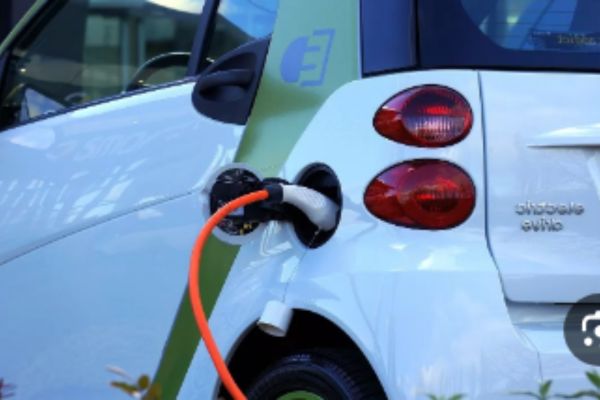
FAQs: Common Queries
What are the differences between EV charger levels?
Different levels categorize EV chargers based on their charging power and speed. Level 1 chargers use a standard 120-volt household outlet and provide the slowest charging rates, making them suitable for overnight charging.
Level 2 chargers require a 240-volt outlet and offer faster charging speeds, making them ideal for home and workplace charging.
Public charging stations typically house Level 3 chargers, also known as DC fast chargers, which offer the fastest charging rates but require specialized infrastructure.
What are the necessary installation specifications for EV chargers?
Local building codes, the property’s electrical capacity, and the charger’s power rating all play a role in determining the installation requirements for EV chargers.
Standard household outlets typically accommodate Level 1 chargers, whereas a dedicated 240-volt circuit with adequate amperage capacity is necessary for Level 2 chargers. It’s essential to consult a qualified electrician to assess your property’s electrical infrastructure and ensure compliance with installation guidelines and safety standards.
How long does it take to charge an electric vehicle?
The time required to charge an electric vehicle depends on several factors, including the vehicle’s battery size, charger power rating, and current battery state of charge.
Level 1 chargers typically provide around 2–5 miles of range per hour of charging, while Level 2 chargers can deliver anywhere from 10 to 30 miles of range per hour. Level 3 DC fast chargers can provide a significant charge in as little as 30 minutes, depending on the vehicle’s compatibility and charging capabilities.
Can I install an EV charger at home?
If you have access to suitable electrical infrastructure and follow local regulations, you can install EV chargers at home.
A Level 1 charger requires no additional wiring and is relatively easy to install into a standard household outlet. Level 2 chargers require a dedicated 240-volt circuit, which may necessitate professional installation by a licensed electrician.
Before installing an EV charger at home, it’s crucial to assess your property’s electrical capacity and consult local authorities to ensure compliance with building codes and permitting requirements.

Henry Michael is a leading expert in EV charging station research, specializing in innovative solutions for electric vehicle infrastructure. With a passion for sustainability and technological advancement, he is dedicated to advancing the accessibility and efficiency of EV charging worldwide.
